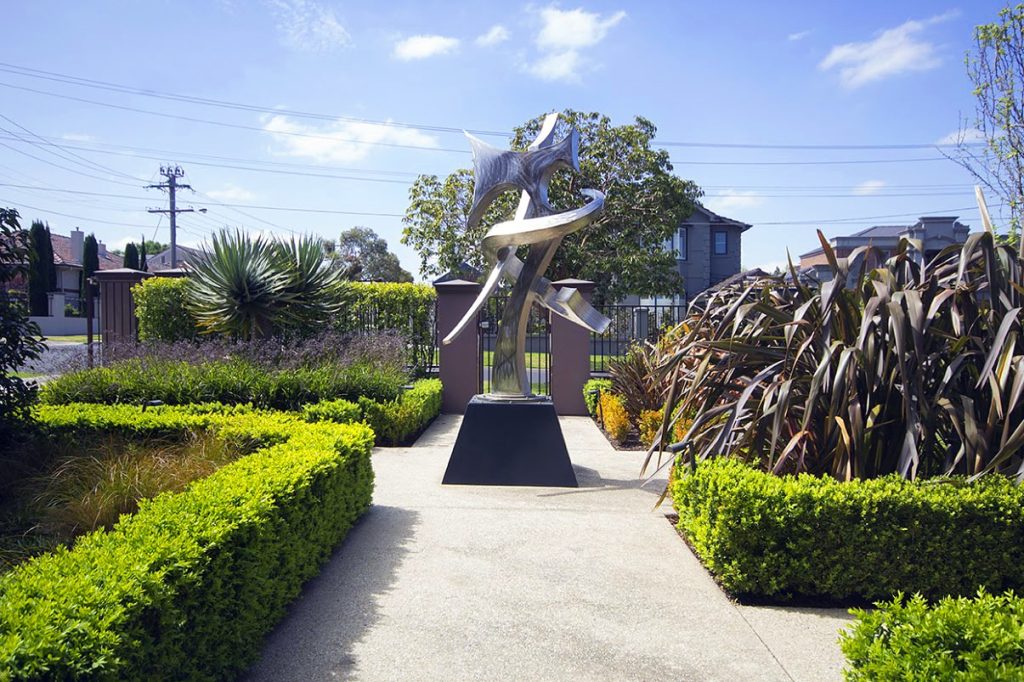Melbourne Garden Trends: Local Solutions for 2025’s Climate Challenges
January 15, 2025
Tuckerman highlights Melbourne garden trends for 2025, offering local solutions to tackle climate challenges with sustainable and innovative landscaping.
Melbourne garden trends are evolving to reflect the growing need for sustainability and adaptability in urban and rural settings. Gardening techniques are changing to address the issues brought on by climate change as more individuals look for ways to design useful, eco-friendly outdoor areas. These shifts not only influence the design of gardens in Melbourne but also the types of solutions available for different environments, whether urban or rural.
Sustainable Materials and Practices in Melbourne Garden Trends
Sustainability is at the heart of current Melbourne garden trends, guiding how gardens are designed and maintained. The main sustainable components influencing Melbourne gardens are listed below:
• Water-efficient systems: Incorporating drip irrigation or soaker hoses can drastically reduce water usage while still providing plants with the moisture they need. These systems target the root zone directly, ensuring minimal water wastage.
• Native plants: Choosing plants native to Melbourne or the broader Australian environment is a sustainable option for gardens. These plants are adapted to local climates, requiring less water and offering valuable habitats for local wildlife.
• Recycled materials for garden features: Using recycled stone, timber, or bricks can reduce waste and bring a rustic, timeless look to the garden. This not only makes the space eco-friendlier but also supports a circular economy.
• Composting and organic waste management: Composting garden clippings and kitchen waste creates nutrient-rich soil that benefits plant health. This practice also diverts organic waste from landfills, contributing to a more sustainable environment.
Climate-Resilient Landscaping: A Key Element of Melbourne Garden Trends
As Melbourne experiences increasing fluctuations in weather patterns, designing for climate resilience is becoming a key part of gardening practices. Climate-resilient landscaping involves making thoughtful choices that help gardens endure both droughts and heavy rainfall, which are common challenges in the region. Gardens must have resilient plant species and flexible designs that adapt to Melbourne’s particular weather patterns to last.
A strong focus is on selecting drought-tolerant plants that can thrive with minimal water. Climate-resilient gardens are also designed to manage stormwater effectively, using swales, rain gardens, and permeable surfaces to reduce runoff and enhance water retention. Such strategies are essential in both urban and rural environments where stormwater can be a major issue.
Another important aspect of climate-resilient landscaping is soil health. Many Melbourne landscapers and garden designers like us are choosing organic mulches and compost to improve soil structure and promote sustainability. This holistic approach to garden design is an essential part of Melbourne garden trends, ensuring that outdoor spaces remain both functional and beautiful in changing climates.
Embrace Sustainable Landscaping with Tuckerman’s ExpertiseMelbourne garden trends are changing to make beautiful and sustainable environments as we continue to face climatic problems. The incorporation of climate-resilient designs and sustainable materials ensures that gardens are not only a reflection of the environment but also an active contributor to its preservation.
Tuckerman has more than 30 years of expertise designing custom outdoor spaces for people looking for professional advice on turning their outside areas into eco-friendly, useful retreats. Our family-owned business provides quality garden construction services that align with your environmental values and unique style needs. Join the movement with us towards sustainable landscaping that works for the environment and your lifestyle.
Optimized by: Netwizard SEO
